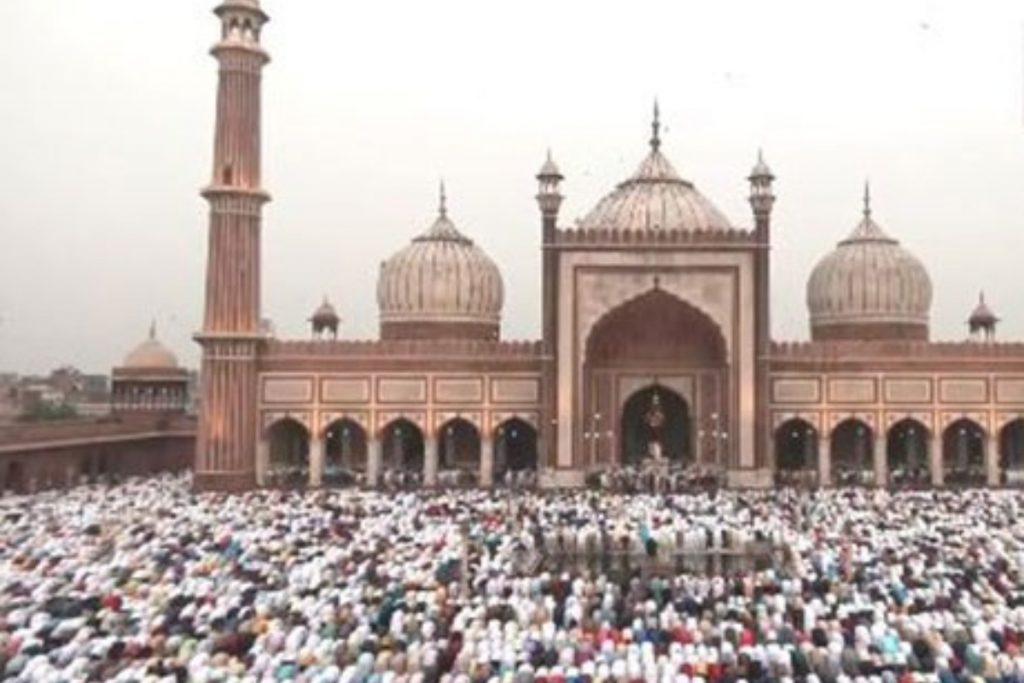New Delhi: After almost two years, devotees in large numbers offer Namaz at Delhi’s Jama Masjid on the occasion of Eid-Ul-Fitr on Tuesday.
“I wish everyone on the occasion of Eid. I hope peace and growth prevail everywhere,” said Rahim, a devotee.
During the occasion of Eid-Ul-Fitr in the last two years, devotees were requested to offer Namaz in their homes as mosques in the national capital were closed due to COVID-19.
“We are happy that we got a chance to offer namaz here after almost two years. I have come here with my entire family,” said another devotee.
Hoping for the peace in the country, another devotee said, “I am happy offering namaz here. I wish peace prevailed in the country and the country should not be divided in the name of religion by politicians.”
Meanwhile, Police have also deployed adequate security arrangements around Jama Masjid to avoid any mishappening.
“Adequate security arrangements have been done in Jama Masjid and nearby places. There is sufficient deployment of police forces. Eid celebrations must be done peacefully, following law and order,” said Dependra Pathak, Special Commissioners of Police, Delhi.
With the sighting of the crescent moon on Monday, the month-long fasting observed by the people of the Muslim community during Ramzan has come to an end and Eid-ul-Fitr is being celebrated across the country on Tuesday.
On the occasion, Prime Minister Narendra Modi extended best wishes on Eid-ul-Fitr and hoped that the auspicious occasion enhances the spirit of togetherness and brotherhood in the country.
“Best wishes on Eid-ul-Fitr. May this auspicious occasion enhance the spirit of togetherness and brotherhood in our society. May everyone be blessed with good health and prosperity,” PM Modi said in a tweet.
Eid-ul-Fitr is celebrated by Muslims around the globe to mark the end of the Islamic holy month of Ramzan.
Ramzan is observed by Muslims worldwide as a month of fasting to commemorate the first revelation of the Quran to the Prophet Muhammad, according to Islamic belief.
Ramzan is the ninth month of the Islamic calendar, which involves rigorous fasting for about 30 days.
During this month, Muslims do not consume food or water from dawn to dusk. They eat Sehri (a pre-dawn meal) and break their day-long fast with ‘Iftar’ in the evening.
Eid ul-Fitr marks the end of the fasting month of Ramzan. The festival is celebrated on the first day of Shawwal, the 10th month of the Islamic lunar calendar.
The festival is celebrated by sharing a delightful dish Seviyan (Vermicelli) that comes under different varieties like Hath Ka Seviyan, Nammak Ka Seviyan, Chakle Ka Seviyan and Laddu Seviyan. All these variants can be used in the dish called Sheerkurma, which is also prepared on Eid and distributed among friends and relatives.

